Belinda Pooley
Eumundi, QLD
View profile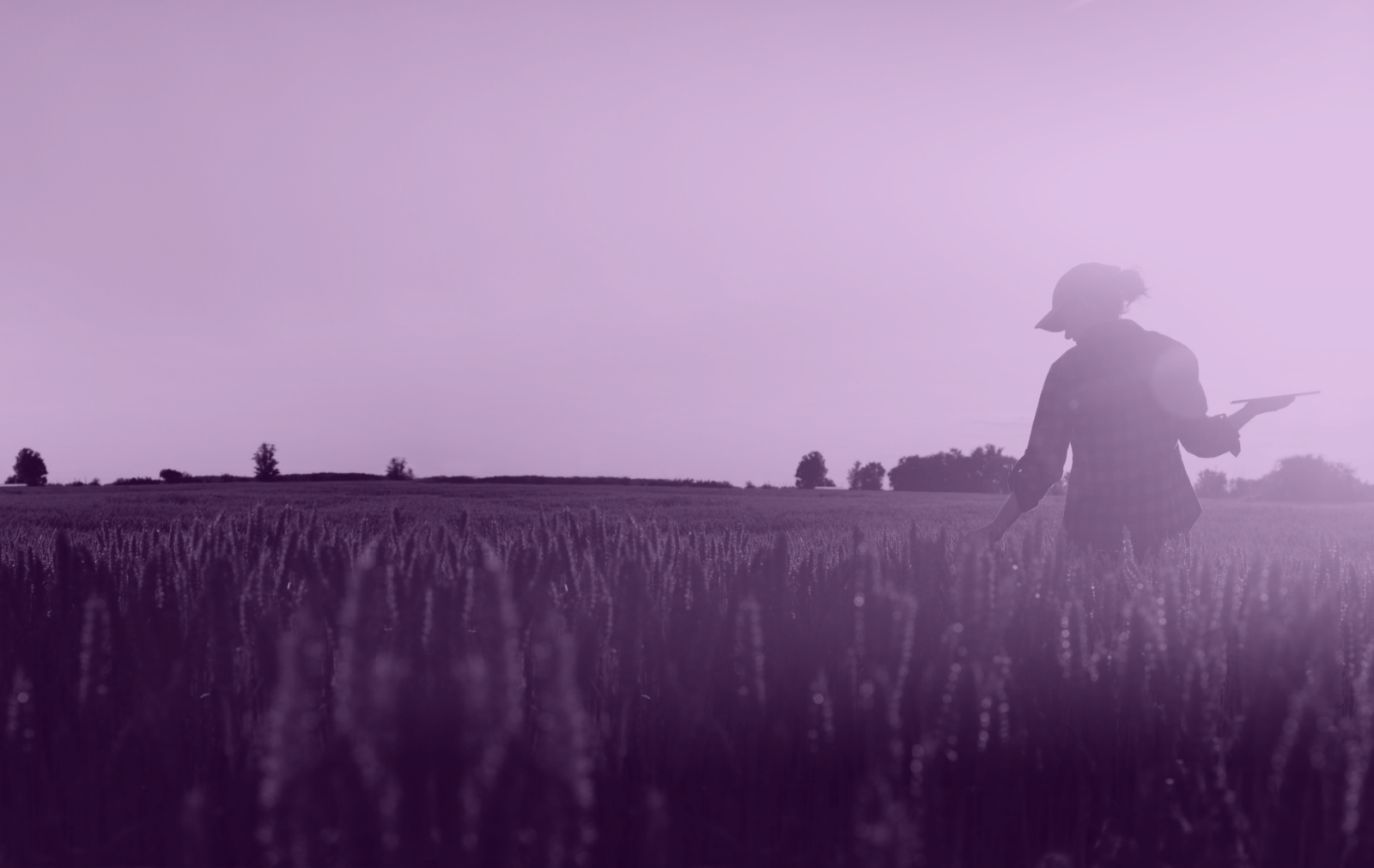
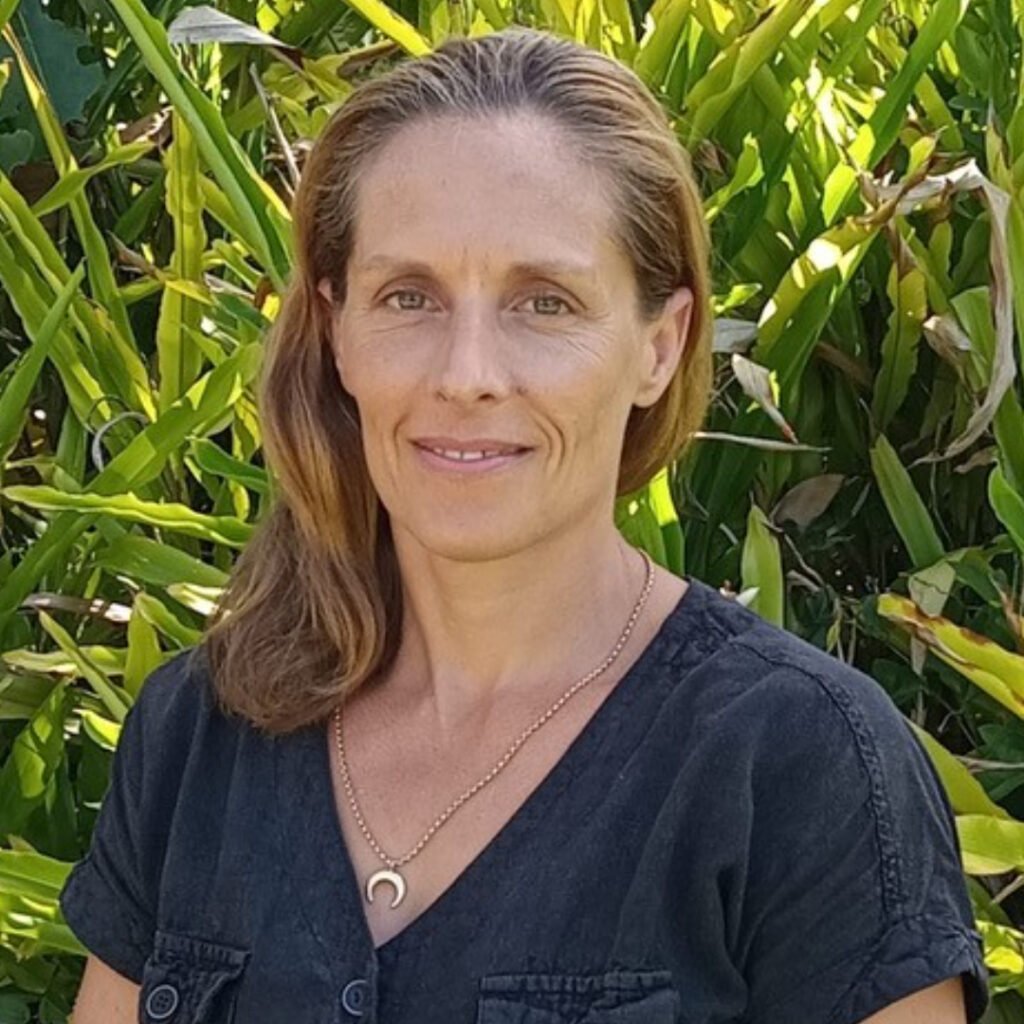
Belinda is a dedicated beekeeper in Southeast Queensland and has turned her childhood intrigue into a thriving passion. Over the past five years, inspired by her father’s legacy as a South African beekeeper, Belinda’s journey evolved into a mission to educate young minds about the indispensable role of honey bees in our ecosystem. Following the success of a 2021 workshop hosted at her daughters’ school, she expanded her outreach, conducting pro bono sessions for children on the Sunshine Coast and Green School in South Africa.
Under the umbrella of ‘Bee School,’ Belinda envisions using the Rural Women’s Acceleration Grant to fund the development of vibrant, hands-on workshops for primary school children, complemented by online instructional videos and DIY beeswax project kits. Her goal is to spark curiosity, make beekeeping more accessible and inspire interest in the broad potential of bee-derived products.
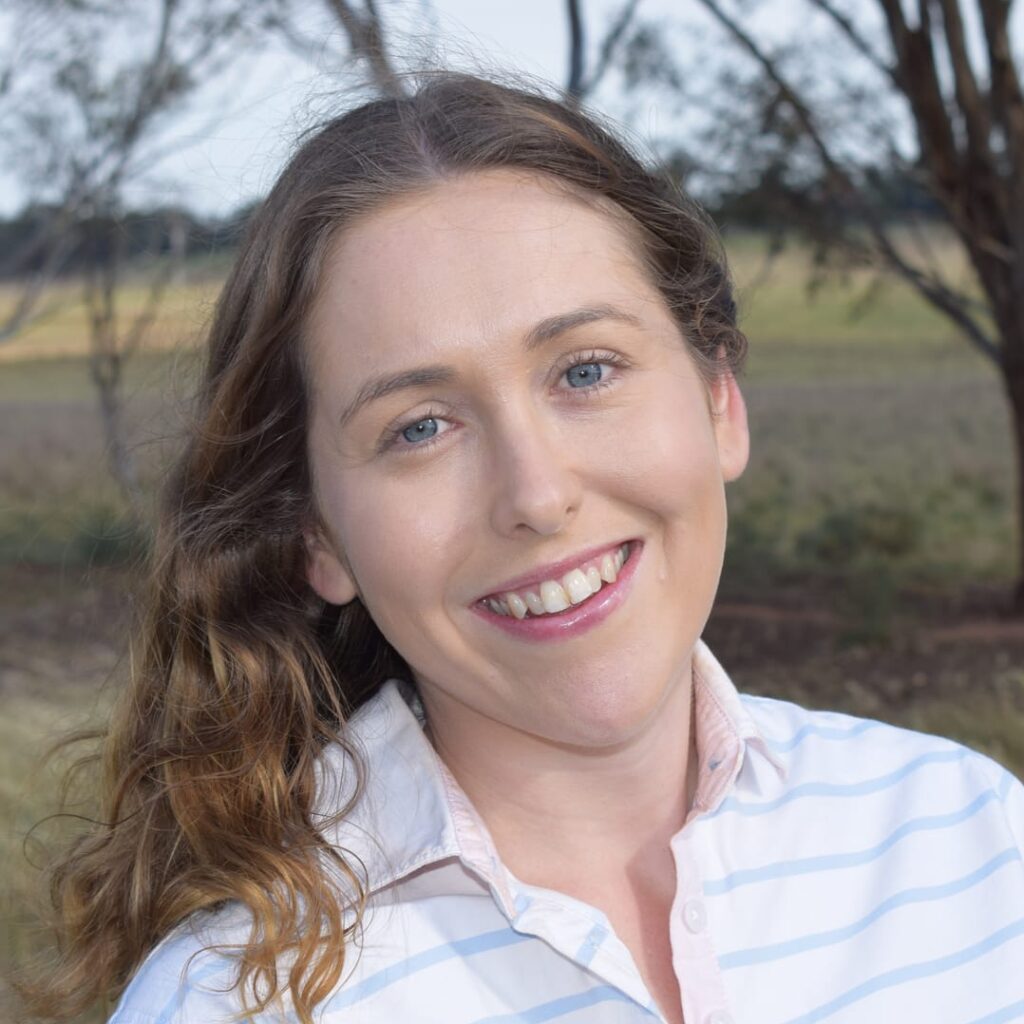
A dedicated farmer, teacher, and mother residing in Central West New South Wales, Emily is a driving force in bridging the gap between education and agriculture. With a Bachelor of Secondary Teaching, a Bachelor of Social Science in Psychology and a Diploma of Agriculture, Emily, alongside her husband and two children, manages a commercial mixed farming enterprise.
Emily is committed to rural education and has demonstrated this through her leadership of special and inclusive education in rural and regional schools. Through her project, Ag Journey Australia, Emily envisions shaping ‘our future in Agriculture’ by empowering students with the knowledge that they are pivotal to the industry’s success. She plans to use the Rural Women’s Acceleration Grant to highlight the vast opportunities within the Australian ag industry, fostering communication between schools and the community, and addressing labor shortages through education initiatives.
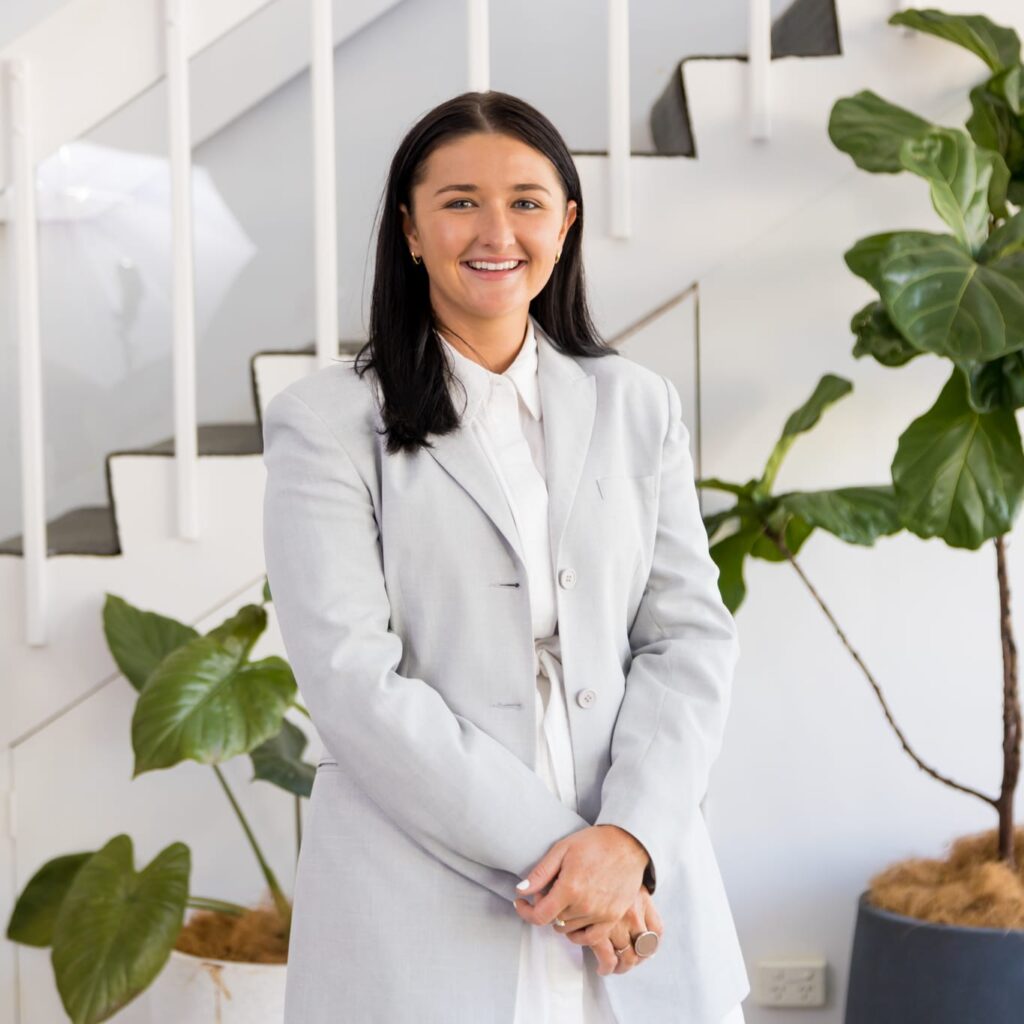
Emily McNair, hailing from a beef cattle station in southwest Queensland, cultivated a deep-seated passion for the agriculture industry from a young age, with a background in the beef supply chain growing her passion for genetics, reproduction and herd improvement. Currently pursuing a Dual Bachelor of Agribusiness and Animal Science, Emily is committed to advancing her knowledge and skills in animal reproduction.
In her role as a breeding and genetics advisor, Emily identified a critical skills shortage in bovine embryo transfer (ET) and embarked on a project to address this gap. Collaborating with colleagues and mentors in the field, she envisions a collaborative strategy, drawing on the expertise of industry leaders both in Australia and abroad. Emily plans to use her Acceleration Grant to undertake a study tour to the United States, gaining invaluable insights into the opportunities and challenges for developing a comprehensive training model for Australian beef producers.
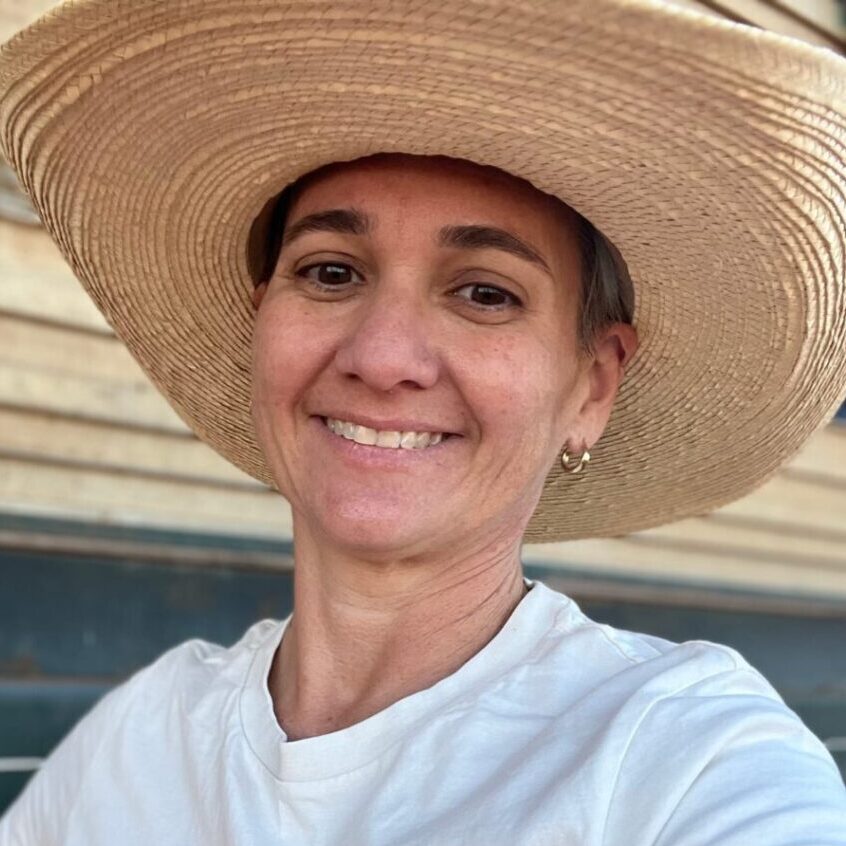
Gillian Fennell wears many hats: agfluencer, board member, beef cattle producer, wife and mother. With over two decades of experience living and working on a sprawling million-acre station in remote outback South Australia, Gillian actively engages in livestock industry representation at both state and national levels. She leverages her platforms for good, dispelling stereotypes about farming and fostering a positive public image of the agricultural community.
Gillian plans to use her Rural Women’s Acceleration Grant to develop the podcast series ‘Suck-cession: What happens when planning for the future doesn’t go to plan.’ In a six-part exploration, she will delve into the challenges, barriers and human costs of inadequate succession planning in Australian agriculture. Featuring experts, thought leaders, and personal stories, the series aims to build a community of passionate individuals invested in navigating the complexities of succession planning and working to shape a strong foundation for Australia’s agricultural industry in the future.
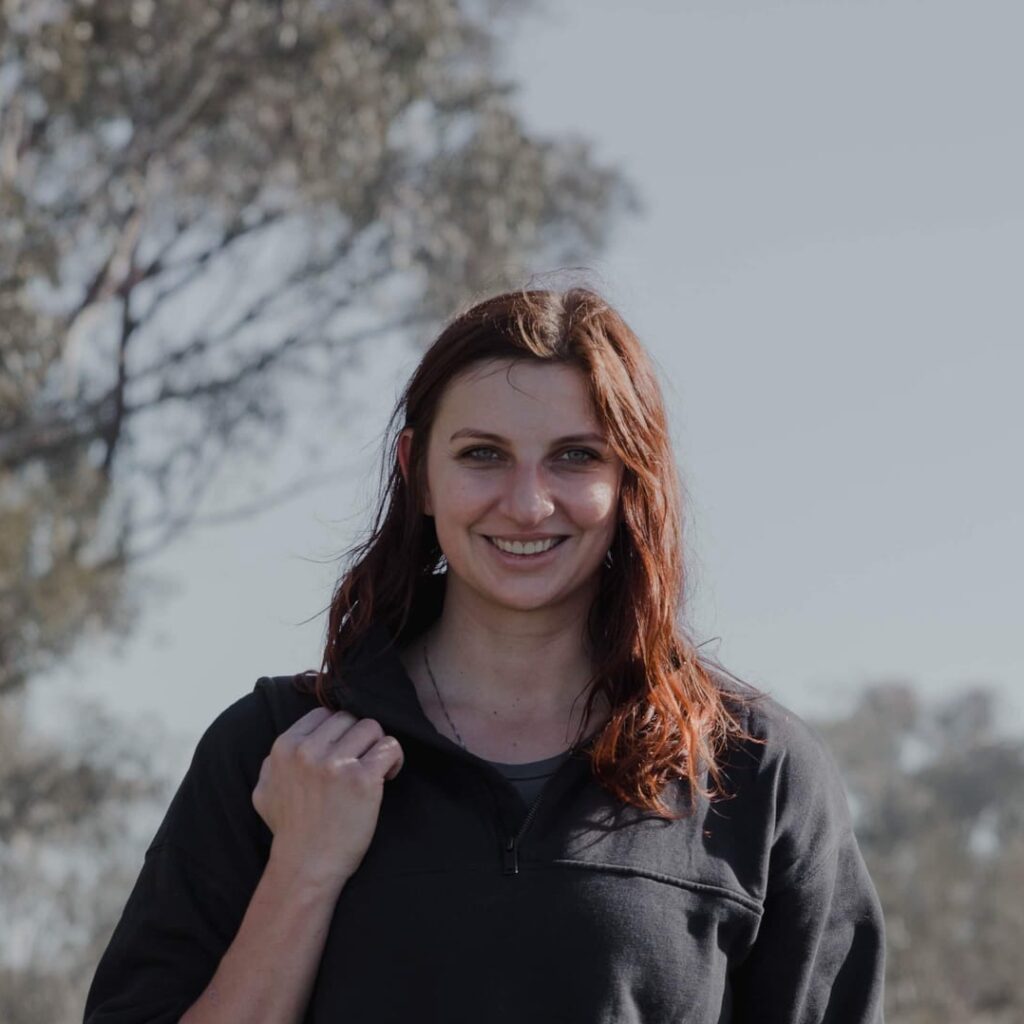
Olga Davis, a recent arrival in regional Victoria, has embarked on an inspiring homesteading journey, driven by her passion for sustainable living and community empowerment. In her professional life as an Economic Development Officer at the Rural City of Wangaratta, she dedicates herself to fostering the prosperity and economic advancement of local communities.
Fueled by her recognition of the growing prevalence of nutritionally deficient fast food in rural and regional communities, Olga plans to use her Rural Women’s Acceleration Grant to launch the Down Under Homestead project. Her endeavor seeks to resurrect and disseminate skills in growing, preserving and preparing wholesome meals, enabling a return to healthier lifestyles for those living in rural areas. Raised in a family where food cultivation and preservation were ingrained practices, Olga brings a wealth of hands-on experience and a profound appreciation for self-sufficiency to the project.
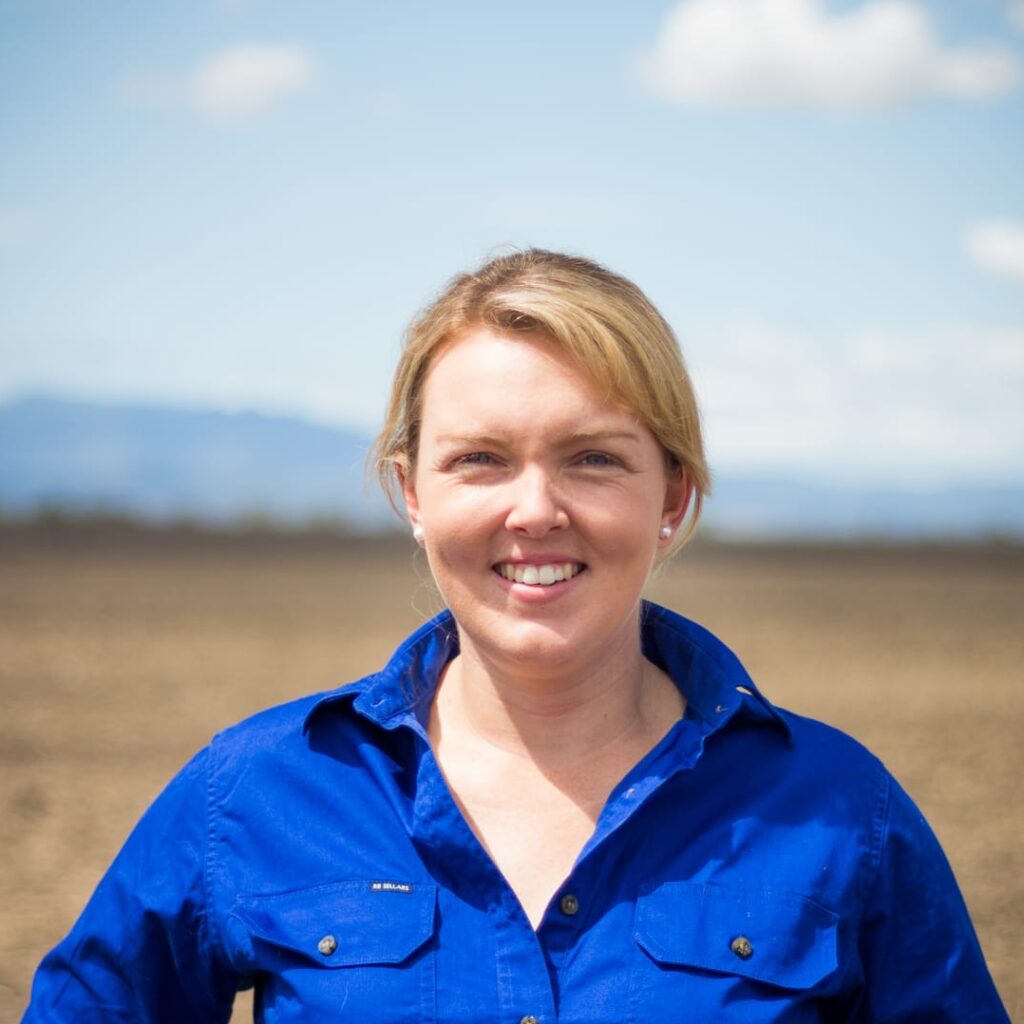
Rebecca Thistlethwaite, a dedicated agricultural researcher, traded city life in Sydney for the enchanting but unpredictable landscapes of Narrabri nearly a decade ago. A research associate at The University of Sydney Plant Breeding Institute, Rebecca is passionate about global food security, sustainable production and climate change impacts on agriculture. Her work focuses on enhancing food crop yields under adverse climatic conditions, addressing the pressing challenges facing Australian agriculture in the future.
Driven to empower early-career researchers in the agricultural sector, Rebecca plans to use the Rural Women’s Acceleration Grant to develop ‘AgriCom Connect’, a unique communications workshop and resources program. This initiative aims to bridge the gap between academia and growers/advisors, fostering impactful, industry-focused research. With a commitment to local community connections and two-way dialogue, Rebecca plans to ensure the program’s effectiveness by involving key individuals in each region to address current and future challenges in farming communities.
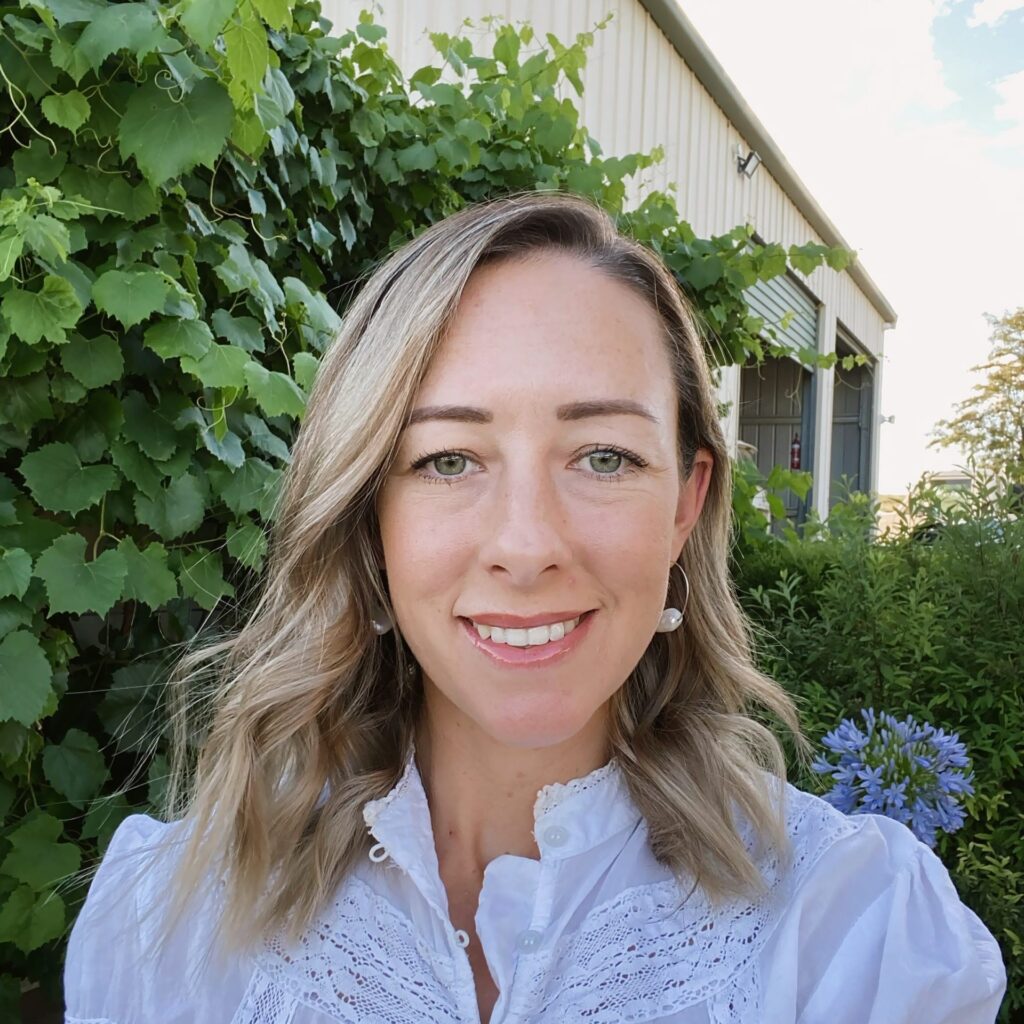
Sarah dreamed of becoming a vet since the age of seven, and her love for her profession remains unwavering after a decade of working as a vet. As a wife and mother of two, she understands the delicate balance of work and family life. Having worked in mixed practice across central QLD and northern NSW, including periods of locum work, she has witnessed the toll the veterinary profession can take on individuals, particularly peers struggling with the pressures and demands.
Fuelled by a desire to see positive change in the industry’s mental health landscape and the nationwide veterinary shortage, Sarah plans to use her Rural Women’s Acceleration Grant to establish herself as ‘The Vet Mind Mentor’, an initiative providing tailored support and mindset mentoring, with a particular focus on the unique challenges faced by female veterinarians. Her goal is to instil mental resilience, enhance emotional well-being, and contribute to the longevity and fulfillment of veterinary careers.